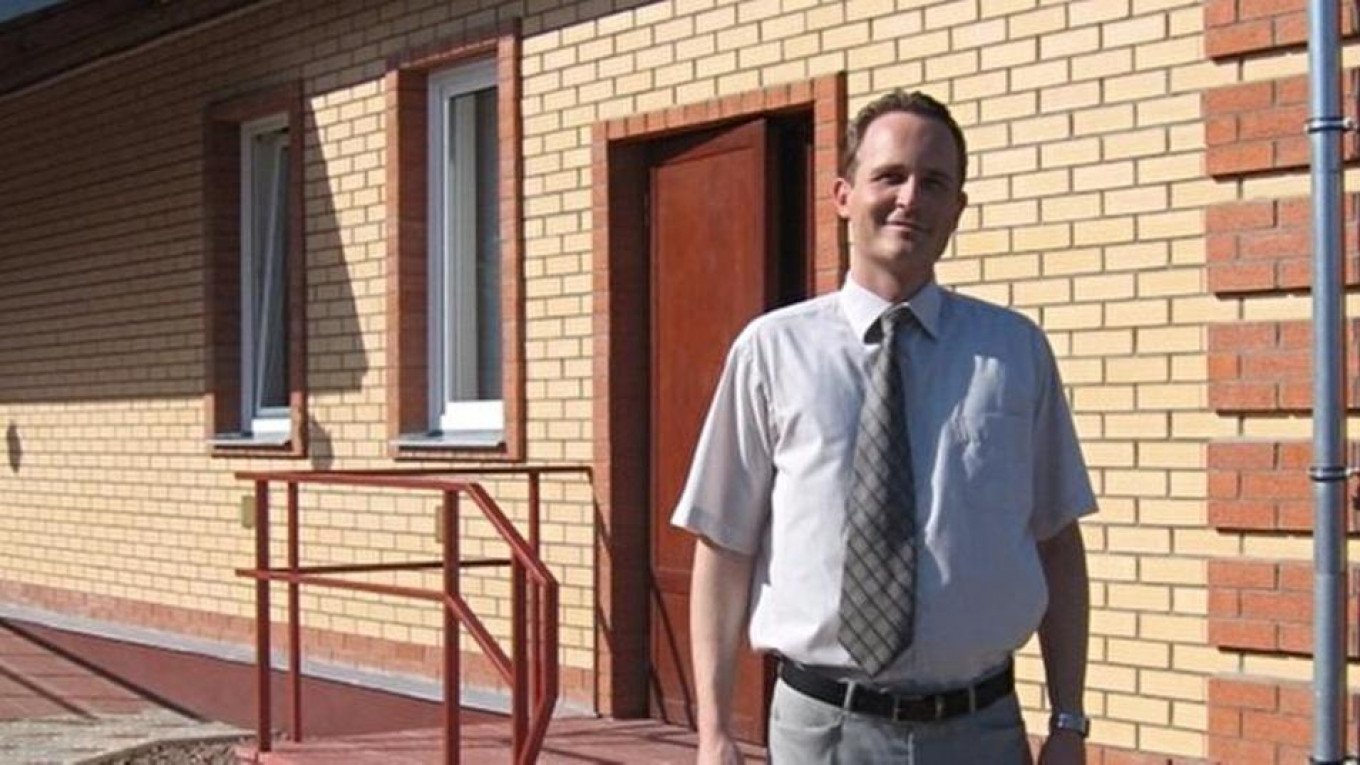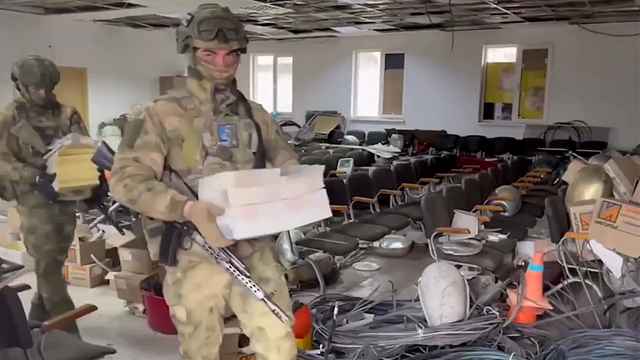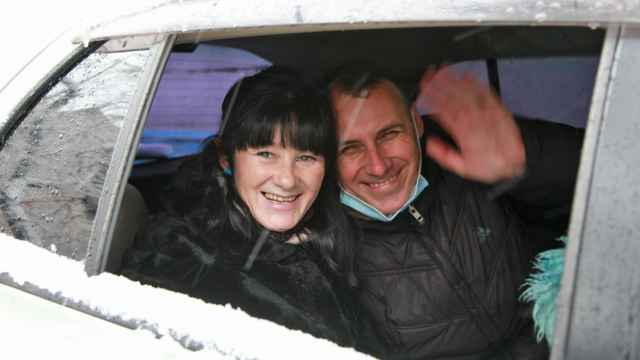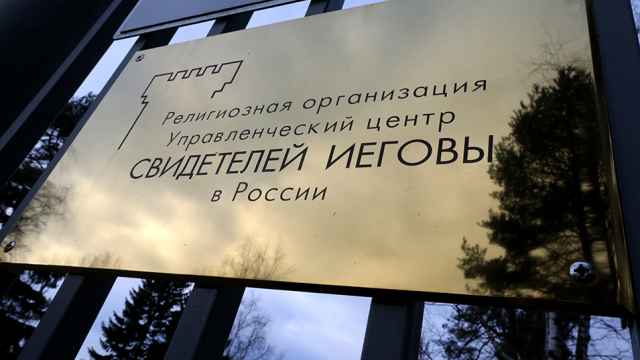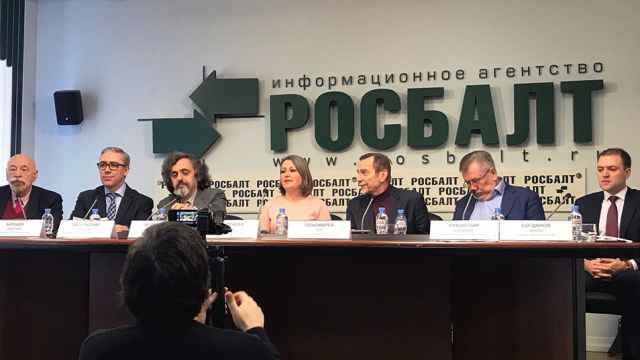The men who stormed into the hall were armed with handguns and clad in masks and bullet proof vests, as if prepared for a shootout. Inside, several dozen worshipers, many of whom were children or elderly, were in the midst of a Bible reading.
The raid, led by the police and Federal Security Services (FSB) officers last May in Oryol, targeted the Jehovah’s Witnesses, a Christian denomination known for its strict interpretation of the Bible. A month earlier, a Supreme Court decision had declared it an extremist group, putting it on par with violent terrorist organizations like Islamic State, which is banned in Russia.
The Jehovah’s Witnesses in recent years had increasingly come under the authorities’ spotlight. Analysts told The Moscow Times that the group had been swept up in Russia’s drive to reign in minority religious groups that rival the Orthodox Church and oppose President Vladimir Putin’s militaristic brand of patriotism.
But the crackdown on the Jehovah’s Witnesses, analysts said, did not take off in earnest until the raid in Oryol. It marked the first arrest following the Supreme Court ruling, notably of a Danish citizen, Dennis Christensen, who had been leading the Bible reading that late spring evening.
On Monday, after being held in a pre-trial detention center for 11 months, the proceedings, which his lawyers say could last up to three months, finally began. Fighting charges of extremism, Christensen faces up to 10 years in prison.
“They chose a foreigner on purpose, rather than a Russian,” said Roman Lunkin, director of the Center for the Study of Religion and Society, a state-run institute. “He has been used as an example to demonstrate that no one is safe.”
Earlier this month, Human Rights Watch called on Russian authorities to release Christensen. “From the start, investigators have been warping Dennis Christensen’s peaceful participation in his faith to make it appear criminal,” the group said in an online statement. “He did nothing wrong and should be freed.”
“Russian officials have repeatedly declared that the 2017 ban against our organization does not prohibit us from practicing our faith as individuals,” David A. Semonian, international spokesman for Jehovah’s Witnesses at their headquarters in New York told The Moscow Times. “However, these raids and arrests clearly illustrate that this is not the case.”
Christensen, a 46-year-old handyman, arrived in Russia at the turn of the millenium, settling in the Arctic port city of Murmansk, where he met his future wife Irina. The couple married in 2002, and has spent the past 11 years in Oryol.
Almost a year after her husband’s arrest, Irina still does not see why he is being considered a criminal. “I can’t understand what he has to do with extremism,” she said in a phone interview. “He is a man who preaches understanding and love and peace.”
Like many of Russia’s approximately 175,000 Jehovah’s Witnesses, Irina says she found the faith in the ’90s after the fall of the Soviet Union, when a new constitution ensured religious freedom. After trying out different Christian denominations, she settled on the Jehovah’s Witnesses, she says, because of the group’s strict interpretation of the Bible.
The past year has been a struggle physically for her husband, even if the couple’s faith has not wavered, Irina said. Back pain was followed by a digestive tract issue, then an ear infection, then toothaches. “He’s never been this sick,” she said.
But she added that the Danish Embassy in Russia has maintained regular contact with local doctors to ensure her husband’s health. (A spokesman told The Moscow Times the Embassy did not have a statement on the trial, but that it is following the proceedings closely.)
“They are prepared for this,” said Emily Baran, the author of “Dissent on the Margins: How Soviet Jehovah's Witnesses Defied Communism and Lived to Preach About It.” “They’ve dealt with persecution in many countries, and it’s hardly true that Russia is the only country where they’re dealing with legal challenges.”
The denomination, which was founded in the United States in the 19th century, has earned the distrust of governments around the world including the United States, Nazi Germany, the Soviet Union, and South Korea, by placing God above country.
“You can see how they could be viewed as a threat to the state,” said Baran. “They don’t vote, they don’t participate in military service, they don’t sing the national anthem.”
The Jehovah’s Witnesses also present an easy target because many people view their famously in-your-face proselytizing as a nuisance. According to a poll last June, roughly 80 percent of Russians wanted the group banned, even though half were oblivious to the Supreme Court ruling.
“They are easy to shut down because doing so won’t spark protests on the grounds of religious freedom,” explained Maria Kravchenko, who tracks anti-extremist policies at the Moscow-based SOVA Center.
Kravchenko said there is no single reason that Russian state would revive the Soviet-era practice of barring minority religious groups. But, she noted, the influence of the powerful Orthodox Church and the desire of the security services to have complete control played a role.
She also pointed to escalating tensions with the West, particularly the United States where the denomination is based. “They are of course riding the anti-American wave,” she said. “And in Oryol, because they don’t have that many foreigners, the local siloviki” — officials with ties to law enforcement — “likely saw Christensen as the perfect target to show they were taking anti-Western measures.”
Christensen, however, is not the only casualty of the state’s campaign.
Over the past month, at least four Jehovah’s Witnesses have been detained across the country, with raids reported from Murmansk to Vladivostok in the Far East. And since last year’s Supreme Court ruling, believers have reported beatings, arson attacks on their homes, and threats to have their children removed.
A spokesperson for Russia’s Jehovah’s Witnesses did not know exactly how many members have since fled the country in fear of persecution, but he estimated their number in the hundreds. In neighboring Finland, for instance, a local newspaper reported in January that dozens have applied for asylum.
Nonetheless, many believers have stayed and continue to meet regularly. The difference now is that they congregate in small groups in each other’s apartments, like their predecessors did during the Soviet era.
“We try to never meet in the same apartment twice in a row,” one Jehovah’s Witness in Moscow said on the condition of anonymity. Although many of his friends had left for Finland, Germany or the United States, he was determined to stay.
“People should make their own decisions,” he said. “But for those of us who have stayed, the situation has only strengthened our resolve.”
A Message from The Moscow Times:
Dear readers,
We are facing unprecedented challenges. Russia's Prosecutor General's Office has designated The Moscow Times as an "undesirable" organization, criminalizing our work and putting our staff at risk of prosecution. This follows our earlier unjust labeling as a "foreign agent."
These actions are direct attempts to silence independent journalism in Russia. The authorities claim our work "discredits the decisions of the Russian leadership." We see things differently: we strive to provide accurate, unbiased reporting on Russia.
We, the journalists of The Moscow Times, refuse to be silenced. But to continue our work, we need your help.
Your support, no matter how small, makes a world of difference. If you can, please support us monthly starting from just $2. It's quick to set up, and every contribution makes a significant impact.
By supporting The Moscow Times, you're defending open, independent journalism in the face of repression. Thank you for standing with us.
Remind me later.



